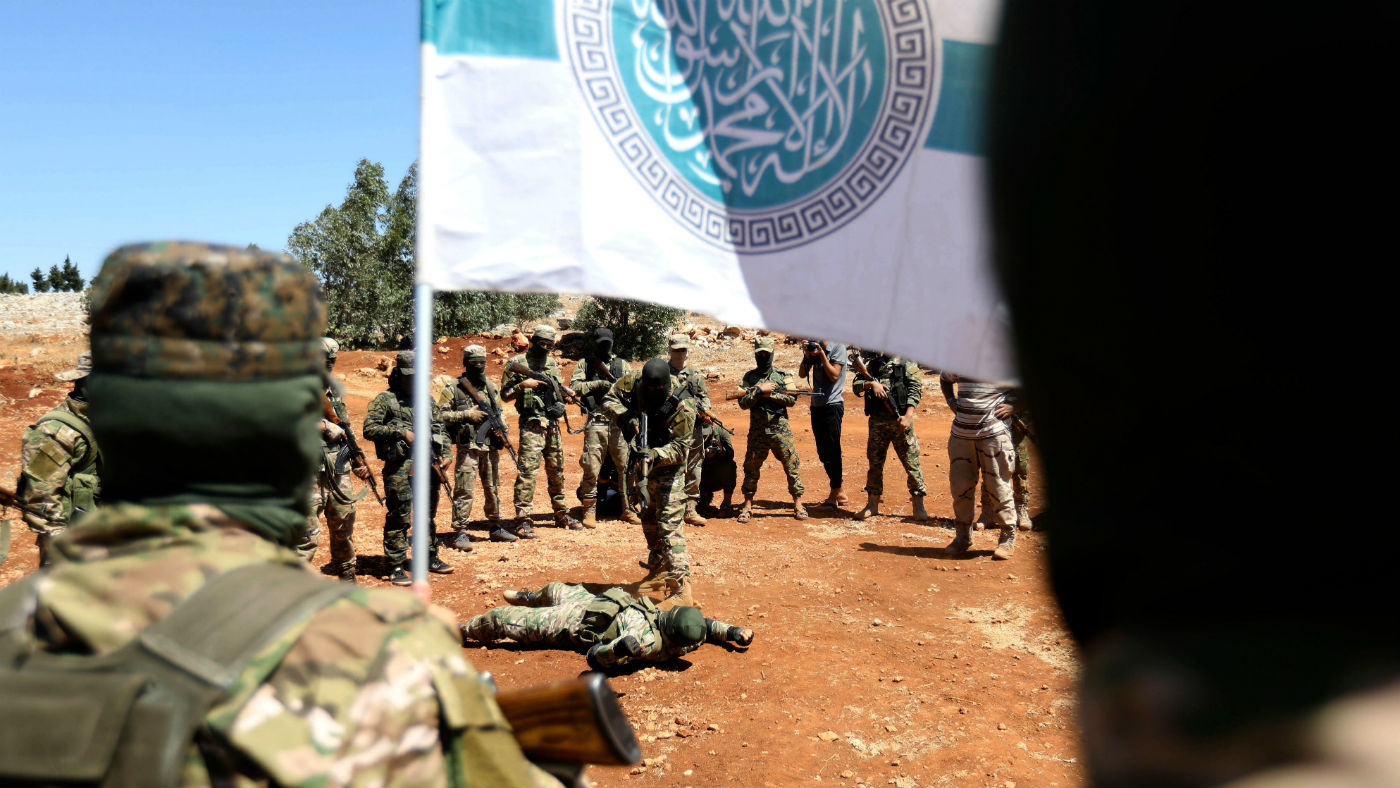
Is hayat tahrir al-sham the new islamic state?
- Select a language for the TTS:
- UK English Female
- UK English Male
- US English Female
- US English Male
- Australian Female
- Australian Male
- Language selected: (auto detect) - EN
Play all audios:

A new Islamist group, dubbed the ‘smarter Islamic State’, has quietly taken over large swathes of Syria in place of the collapsed caliphate. After forcing out rival rebel groups in the
northern Idlib region of Syria earlier this year, Al Qaeda offshoot Hayat Tahrir al-Sham (HTS), “has imposed its control over all aspects of life in the province” and now rules over some
three million people says Richard Hall for The Independent. “Like Islamic State, Hayat Tahrir al-Sham wants to create an Islamic state of its own” writes Hall, but “where IS aimed to expand
quickly and attract the maximum possible attention, HTS has played a long game. It has been pragmatic, and worked with other groups when it needed to. But it has also been opportunistic and
crushed its rivals.” SUBSCRIBE TO THE WEEK Escape your echo chamber. Get the facts behind the news, plus analysis from multiple perspectives. SUBSCRIBE & SAVE SIGN UP FOR THE WEEK'S
FREE NEWSLETTERS From our morning news briefing to a weekly Good News Newsletter, get the best of The Week delivered directly to your inbox. From our morning news briefing to a weekly Good
News Newsletter, get the best of The Week delivered directly to your inbox. Unlike IS, it has put aside worldwide ambitions to focus on succeeding in the local region. “That has meant less
of the headline-grabbing atrocities and violent repression than its former jihadist partner. In doing so, it has pursued a far more durable force than IS.” Idlib, on the Turkish border in
Syria’s north-west, is the last major opposition stronghold in the country. Forced and voluntary displacement from other areas retaken by the government has swollen the province’s population
from one million to approximately three million people. A ceasefire deal to save from an attack by Assad and supported by Russia, was brokered in September, “averting an offensive that aid
groups feared could cause one of the worst humanitarian crises to date in Syria’s eight-year-old war” says The Guardian. “A beneficiary of this truce, HTS is quietly taking over the
administration of the province, imposing a harsh interpretation of Islamic law — a reliable hallmark of jihadi control — and enacting “taxes” on aid convoys” reports Bloomberg. The news
agency says “unlike Islamic State, it hasn’t claimed statehood, and has so far gone along with the ceasefire deal. But HTS has more than 10,000 fighters, and may be able to recruit more from
other groups.” The group hosts a significant number of foreign fighters including Arabs, Turks, Chechens, Uzbeks, and Muslims from China’s Xinjiang province. “Hayat Tahrir al-Sham shares
the same end state goal as IS, which is to build a state based on a rigid interpretation of Salafist Sunni Islam. But it has a smarter way to do it,” says Nicholas Heras, a fellow at the
Center for a New American Security think tank. While receiving little international coverage, the slow assumption of former Islamic State territory by a new extremist group has prompted
growing international concern. Last month, the Russian Permanent Representative to the United Nations Vasily Nebenzya warned the UN Security Council that HTS now controls nearly 90% of the
province with continued raids against Syrian government forces. According to Russian news agency TASS, more than 460 incidents of this kind have been recorded since the beginning of 2019,
which have killed more than 30 people. HTS “remains a ticking time bomb that arguably poses a greater long-term threat to the region and Syria’s stability (than IS)” argues Manish Rai in
International Policy Digest. “Now after one phase of the war is ending another phase should begin with the sole focus of finishing off HTS, even if the United States and its allies have to
coordinate with Turkey and Russia”, he writes. But with international attention turning away from Syria following the much-heralded defeat of Islamic State, and the US indicating it is ready
to pull out of Syria, there appears to be little public pressure or political will for yet another western military intervention in the region.
